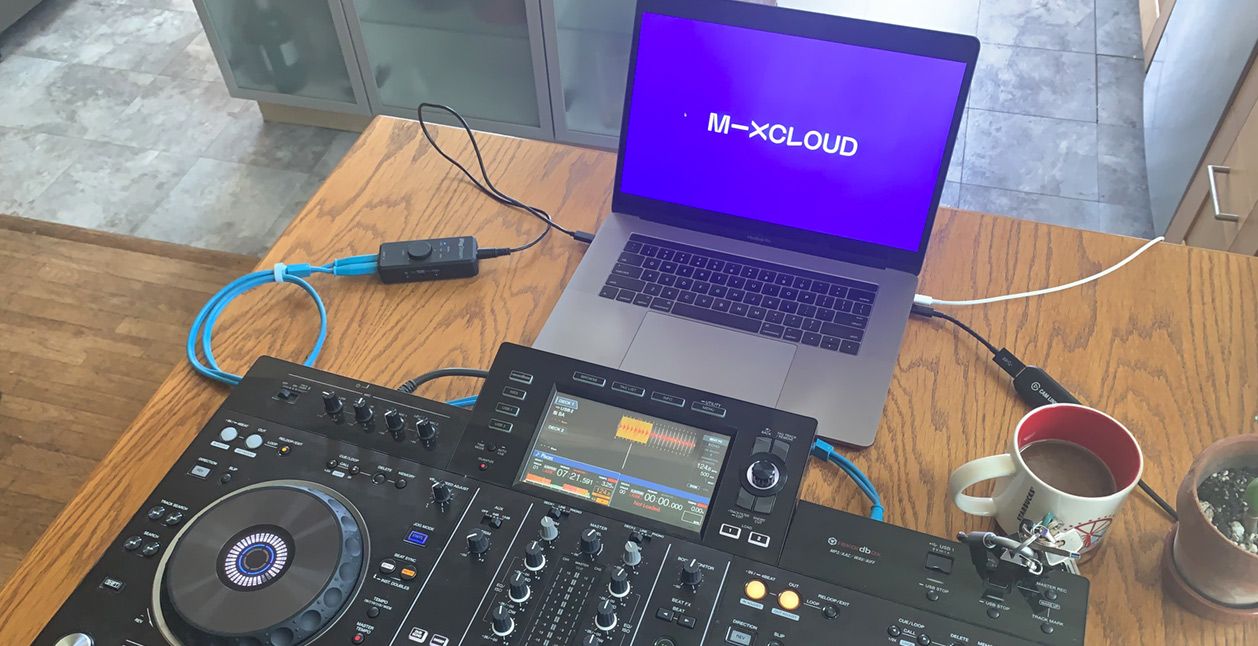Quarantine, coronavirus, lockdown, and the great 2020 gig apocalypse has been hard for DJs and live performers. But the one gasp of solace has been the extraordinary creativity that has been poured into live streaming DJ sets over the last few months.
On October 1st, Facebook will potentially heavily impact the DJ streaming set landscape with an updated Terms of Service agreement. The platform is the most active of all social networks, with a large built-in audience (all of your friends / page’s followers). The change explicitly calls out “music listening experiences” – here’s the text from the new Terms of Service, set to go into effect October 1st, 2020:
You may not use videos on our Products to create a music listening experience
We want you to be able to enjoy videos posted by family and friends. However, if you use videos on our Products to create a music listening experience for yourself or for others, your videos will be blocked and your page, profile or group may be deleted. This includes Live.
Unauthorized content may be removed
If you post content that contains music owned by someone else, your content may be blocked, or may be reviewed by the applicable rights owner and removed if your use of that music is not properly authorized.
Editor’s Update: Facebook has clarified that the notation about “music listening experiences” has been a part of their Terms of Service since 2018.
Let’s be clear: while this is an explicit change in the Terms of Service, Facebook already does this type of music content policing on both uploaded videos and Facebook Live. There are plenty of stories of DJs this summer getting their streams turned off automatically after a certain amount of time, of streams being removed after the fact, and so on.
What the ToS change does is codify the violation and potential repercussions. “Your page, profile, or group may be deleted” is a pretty heavy-handed way of saying “we might remove your entire Facebook presence if you keep streaming DJ sets”.
The crappy thing is that Facebook also has the (financial/organizational/clout-based) power to help content creators, like other streaming platforms have done (Mixcloud, YouTube, and we’ve rumors heard of Twitch working on music performance clearances as well). They should be incentivized to keep people on their platform for streaming content, right? Apparently not.
Didn’t this also happen on Twitch?
If you’ve been watching the issue of DJ streaming for much of 2020, you’ll know that Twitch also revised their terms of service to speficially call out DJ sets as potentially objectionalble types of content.
As far as we know, the main motivation for platforms to add this type of language to their ToS is to cover the platforms’ potential legal liabilities for content posted on their site.
What’s the reality for DJs who do it anyway?
My best guess here is that no one is going to have their page deleted outright without multiple takedowns / strikes first. I’ve heard stories of DJs getting temporarily “banned” from using FB Live after a number of violations.
Is this enforceable?
Sadly, the answer here is probably yes. Content identification has gotten really good over the last few years, with rights organizations highly incentivized to capture as much potential revenue as possible.
There is maybe a case to be made that DJs are not “making a music listening experience” but rather on-the-fly curating unique works via mixing and blending – but there’s no basis in major copyright laws for this, so it’s unlikely to be how Facebook’s legal team view it.
What are the other options for DJs?

Right now, the only truly “safe” place to stream live DJ sets is on Mixcloud Live. For years, Mixcloud has done the hard work of negotiating with rights organizations to be able to host hundreds of thousands of mixes that contain copy-written musical works.
Earlier this year, they launched Mixcloud Live, bringing that same system into live streaming video performances. It’s a decent system and actively being developed – with the caveats that it’s a paid feature and has a relatively much smaller audience of viewers.
The other two options out there are YouTube and Twitch. Both of them have become somewhat more aggressive over DJ set copyright. Here’s the current lay of the land – but obviously this is subject to change:
- YouTube: Their content ID system allows for rights-owners to stake a claim and share ad revenue on the uploaded/streamed mix. There’s still a chance that you might play a song that triggers your stream getting stopped, blocked, or your account getting a copyright strike. Not ideal.
- Twitch: Twitch remains incredibly lenient on live DJ sets, despite them technically being prohibited in their terms of service. The reality is that Twitch gets hundreds of thousands of viewers of DJ content every week, so there’s decent motivation to keep those eyeballs around. Recordings are generally less allowed, and taken down or muted if they match to copy-written content.
What should really happen to fix this never-ending problem?
BMI, ASCAP, are you listening? Do you want to make more money, and stop making enemies and limiting creators? Here’s the solution:
Rights organizations should create affordable monthly/annual memberships for individuals to have blanket coverage across all online streaming platforms. Think of it the same way as how venues work where music is played: they pay a fee to these organizations to be able to have copywritten works played in their venue.
It should be affordable for every DJ – even amateurs and hobbyists.





